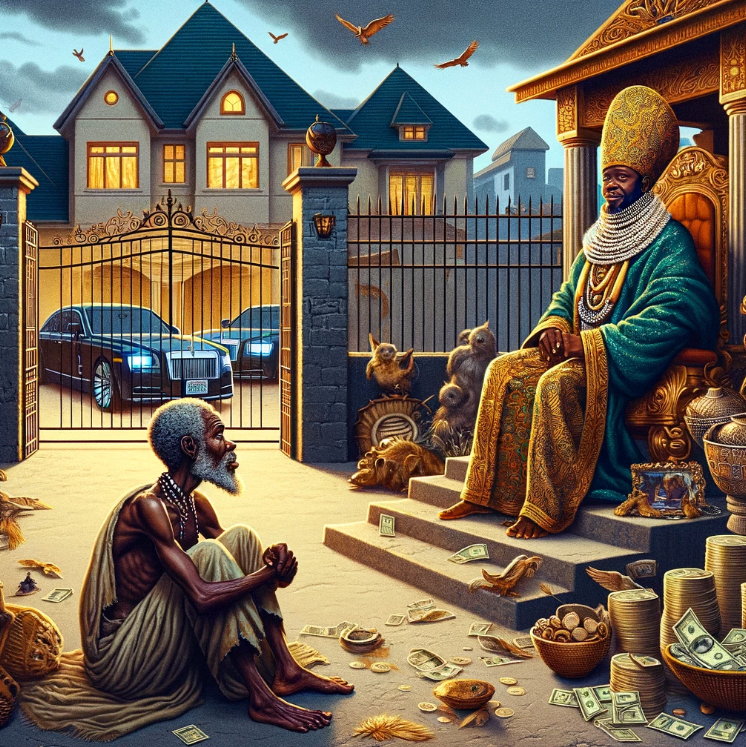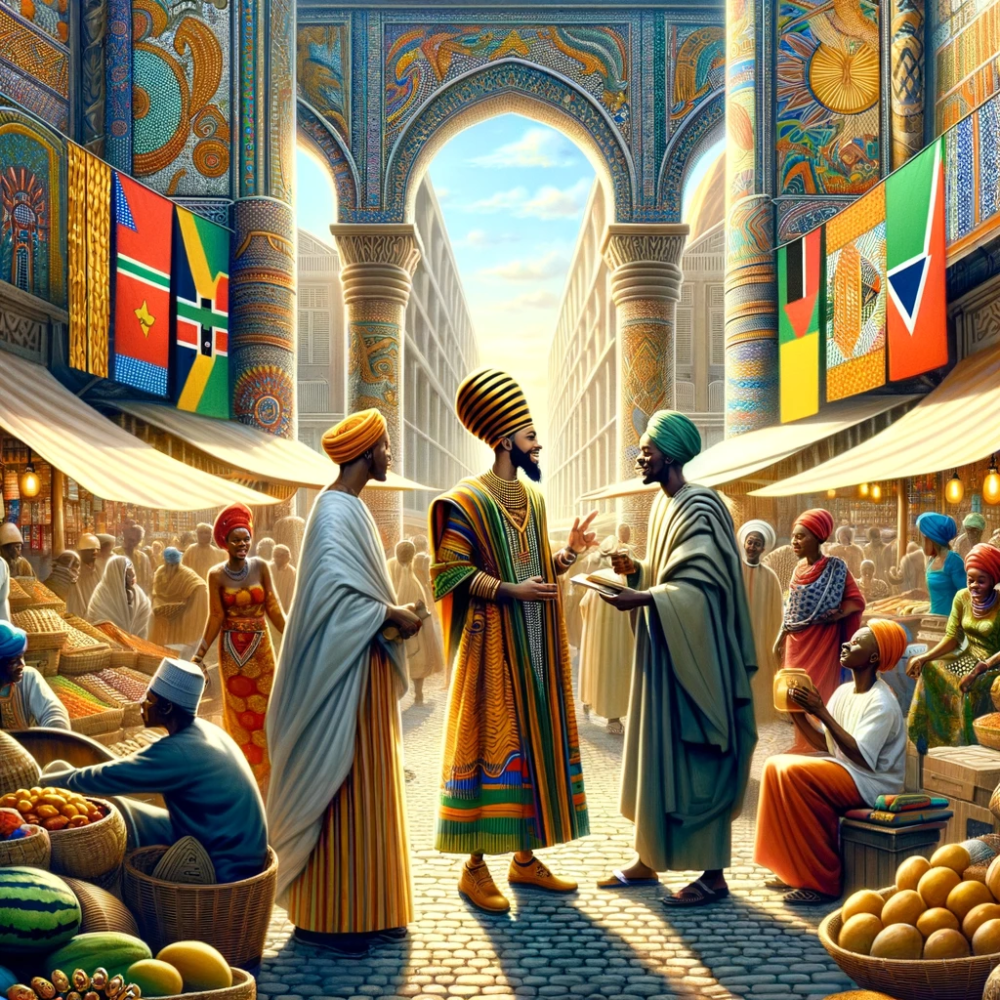In recent days, I sent an email asking if there was or is a specific question about the Bible people wanted answered. This questions came to me.
In the “Rich Man & Lazarus” narrative what are the main truths Christ (the Anointed Prince of Juda) intended to communicate to us?
My response:
The narrative of the Rich Man and Lazarus, found in Luke 16:19-31, is a parable that the Anointed Prince of Juda used to communicate several pretty profound truths. Here are the main truths we concluded he intended to communicate through this parable:
The Reversal of Fortunes in the Afterlife:
- The parable vividly contrasts the earthly lives of the rich man and that of Lazarus with their conditions after death. The rich man lived in luxury, while Lazarus suffered in poverty. After death, their fortunes are reversed or flipped: Lazarus is comforted in Abram’s bosom, and the rich man is in torment.
- This reversal emphasizes the idea that earthly wealth and comfort do not necessarily translate to eternal wealth and well-being. Also, while earthly suffering and poverty do not preclude eternal comfort.
Our status on earth does not signify our status in the afterlife. Instead, our behavior and character on earth does impact what takes place after we leave earth.
The Importance of Compassion and Justice:
- The rich man’s sin is not merely his wealth, but his indifference to Lazarus’s suffering. He ignored Lazarus, who laid at his gate, longing for scraps from the rich man’s table.
- This interaction highlights the importance of compassion and social justice. Ignoring the plight of the needy and suffering is a grave moral failing with eternal consequences.
As stated earlier, our behavior and character is a great judge of our afterlife credentials and admittance to the Kingdom of the Great Creator.
The Permanence of the Afterlife:
- The parable also emphasized the fixed nature of the afterlife. Once in Hades, the rich man could not and cannot cross over to Abram’s side. Consequently, neither could or can Lazarus come to him. This signifies the finality of one’s eternal destiny after death.
- It stresses the urgency of repentance and righteous living during one’s lifetime.
There are many written legends that coincide with the Bible stating the life we are living currently is a trial or tryout. The way we live is a reflection of how we wish to live eternally. If we lie, cheat, and steal, even in the face of being corrected, that is our behavior and character. There is a place for those who love to live that way and they will do so eternally after death. The permanence is why the plea for repentance is often given so emotionally.
The opposite is true for those who love, give, and are so righteous. Their eternal place is in Abram’s bosom.
The Sufficiency of Scripture:
- The rich man pleaded for Lazarus to be sent back to warn his brothers. Abram responded that they have Moses and the Prophets (the Scriptures) and that they should listen and adhere to them.
- This teaches that the Scriptures are sufficient for guiding one to repentance and righteous living. If people do not listen to the Scriptures, they will not be convinced even if someone rises from the dead.
Imagine if you were by a river fishing by yourself and your deceased aunt whom you loved appeared to you. She hugged you and told you to be strong and tell everyone to read their Bible and trust in it 100%! You tell your aunt, “I thought you hated the Bible when you were alive.”
She replied, “That is why I am warning you and the others, I am in torments!” Then she disappears. As you walk home, what are your thoughts? Even if you told your family you saw your favorite aunt, what would they say? I believe we all know where this situation would go. Even if she appeared to the entire family, what would the family’s thoughts be? How would other families respond to how your family responds to your deceased aunt’s message?
I cannot answer this for you, but you can.
The main idea is that not everyone would trust it. However, what everyone can trust is the written Word that has been passed down for centuries.

Eternal Consequences Based on Earthly Choices:
- The parable shows that the choices made in this life have eternal consequences. The rich man’s self-indulgence and lack of compassion lead to his torment, while Lazarus’s suffering and faithfulness lead to his comfort.
- This presents a warning that how one lives, particularly in relation to the treatment of others, matters greatly in the eyes of the Great Creator.
This is not just a warning for individuals. It is a warning for families, communities, nations, political groups, institutions, and so forth. The Almighty Creator is a righteous Judge; harming the weak carry grave consequences.
In summary, the parable of the Rich Man and Lazarus communicates the importance of compassion and justice, the sufficiency of Scripture, the urgency of repentance, and the eternal consequences of our earthly lives. It calls for a profound reflection on how we live, particularly in relation to the less fortunate, and emphasizes the importance of heeding the Almighty Creator’s word.
This is how we see this parable, we pray you see it this way as well. We do not mind additional insight from you. Leave a comment of any additional insight the Spirit has given you. Thank you.
Until next time, Power be with you.
Minister Koko
Teaching Priest, AKOPPI-BSM
*If you have a question you’d like answered, visit this link, join our newsletter, and if we can answer it, we will post it and email you. Our questions help the entire community, so do not hesitate.

